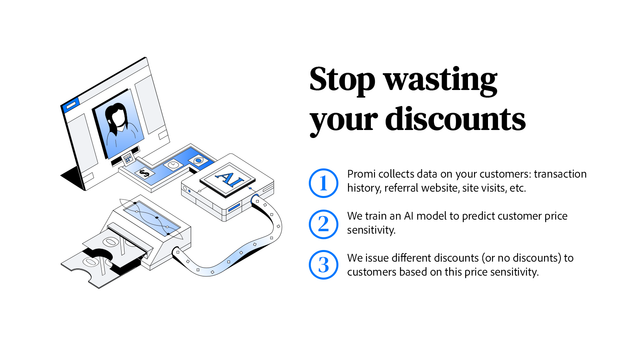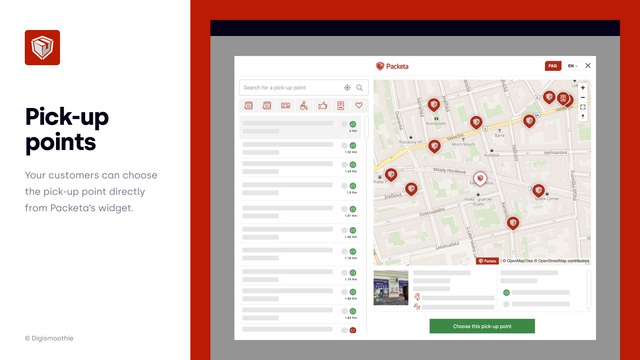Affiliate marketing is a popular online business model that allows you to earn passive income by promoting products and services of other companies. It has gained significant traction in recent years and has become a viable source of income for many individuals. If you're new to affiliate marketing, this beginner's guide will provide you with the necessary knowledge to get started on your journey towards success.
Understanding Affiliate Marketing
In order to embark on this exciting venture, it's crucial to have a clear understanding of what affiliate marketing actually is. Simply put, affiliate marketing is a performance-based marketing strategy where affiliates earn a commission for driving sales or generating leads for a particular company. Affiliates promote the company's products or services through various marketing channels and receive a percentage of the revenue generated from their efforts.
Defining Affiliate Marketing
At its core, affiliate marketing is about forming a partnership between the affiliate (you) and the merchant (the company offering the product or service). You, as an affiliate, act as a bridge between the potential customers and the merchant, leveraging your online platform, such as a blog or social media presence, to promote the products or services.
When you become an affiliate marketer, you essentially become a brand ambassador for the merchant. You have the opportunity to showcase their products or services to your audience, and if they make a purchase or take a desired action, you earn a commission. This partnership allows both parties to benefit - the merchant gains exposure and potential customers, while you, as the affiliate, earn a passive income.
One of the key aspects of affiliate marketing is the use of affiliate links. These are unique URLs that contain a tracking code, which allows the merchant to identify which affiliate referred the customer. When someone clicks on your affiliate link and makes a purchase, the merchant can track the transaction and attribute it to you, ensuring that you receive the commission you deserve.
The Importance of Affiliate Marketing
Affiliate marketing plays a vital role in the digital marketing ecosystem. It provides companies with a cost-effective way to expand their reach and increase sales. Traditional advertising methods can be expensive and may not always yield the desired results. However, with affiliate marketing, companies only pay for the actual results - sales or leads generated by affiliates.
For affiliates, it offers an opportunity to monetize their online presence and earn a passive income stream. Whether you have a popular blog, a thriving social media following, or a YouTube channel with a dedicated audience, affiliate marketing allows you to leverage your influence and turn it into a revenue stream. You have the flexibility to choose the products or services that align with your niche and audience, ensuring that your promotions are authentic and resonate with your followers.
Furthermore, affiliate marketing provides a win-win situation for both affiliates and merchants. Affiliates can earn a commission for every successful referral, while merchants can tap into the affiliate's existing audience and benefit from their influence and credibility. It's a mutually beneficial relationship that allows both parties to grow and thrive.
As the digital landscape continues to evolve, affiliate marketing remains a powerful and effective strategy for companies and individuals alike. It offers a low-risk, high-reward opportunity to generate income and expand brand awareness. By understanding the fundamentals of affiliate marketing and leveraging your unique platform, you can embark on a rewarding journey that combines your passion with financial success.
The Basics of Affiliate Marketing
Now that you have a solid understanding of affiliate marketing, it's time to delve into the specifics of how it works and the different types of affiliate marketing models.
Affiliate marketing is a popular online business model that allows individuals to earn money by promoting other people's products or services. It is a performance-based marketing strategy where affiliates earn a commission for every sale, lead, or click generated through their promotional efforts.
The process of affiliate marketing involves several key players: the affiliate, the merchant, the customer, and the affiliate network. The affiliate network acts as a middleman, connecting affiliates with merchants and facilitating the tracking and payment process.
As an affiliate, you will receive a unique affiliate link from the merchant, which you will use to promote their products or services. This link contains a tracking code that allows the merchant to identify which affiliate referred the customer. When a customer clicks on your affiliate link and makes a purchase, you earn a commission.
How Affiliate Marketing Works
Let's take a closer look at how affiliate marketing works. Imagine you have a blog where you share beauty tips and product recommendations. You decide to become an affiliate for a popular cosmetics brand.
After signing up for their affiliate program, the cosmetics brand provides you with a unique affiliate link. You integrate this link into your blog posts, recommending specific products to your readers. When a reader clicks on your affiliate link and makes a purchase on the cosmetics brand's website, the tracking code in your link identifies you as the affiliate who referred the customer. As a result, you earn a commission from the sale.
It's important to note that affiliate marketing is not limited to blogs. Affiliates can promote products or services through various channels, such as social media, email marketing, YouTube videos, and more. The key is to choose a platform that aligns with your interests and target audience.
Different Types of Affiliate Marketing
There are various types of affiliate marketing models, each with its own advantages and considerations. Let's explore some common types:
1. Pay-per-sale: This is the most common model in affiliate marketing. Affiliates earn a commission when a sale is made through their affiliate link. The commission is usually a percentage of the sale value, ranging from 5% to 50% or more, depending on the product or service being promoted.
2. Pay-per-lead: In this model, affiliates earn a commission for generating leads. A lead refers to a potential customer who takes a specific action, such as filling out a form, signing up for a newsletter, or requesting a free trial. The commission is typically a fixed amount per lead, regardless of whether the lead converts into a sale.
3. Pay-per-click: Although less common, the pay-per-click model still exists in affiliate marketing. Affiliates earn a commission based on the number of clicks generated through their affiliate links. This model is often used in conjunction with other forms of online advertising, such as display ads or search engine marketing.
Choosing the right affiliate marketing model depends on various factors, including your niche, target audience, and the products or services you are promoting. It's essential to understand the terms and conditions of each affiliate program to ensure you are compensated fairly for your efforts.
In conclusion, affiliate marketing offers a flexible and potentially lucrative opportunity for individuals to monetize their online presence. By understanding how it works and exploring the different types of affiliate marketing models, you can make informed decisions and maximize your earning potential in this dynamic industry.
Starting Your Affiliate Marketing Journey
Now that you have a good foundation of knowledge, it's time to take the next step towards starting your affiliate marketing journey.
Choosing the Right Affiliate Program
One of the most critical aspects of affiliate marketing success is choosing the right affiliate program. You want to partner with reputable companies that offer high-quality products or services that align with your target audience's interests. Research different affiliate programs, compare commission rates, and read reviews from other affiliates to make an informed decision.
Setting Up Your Affiliate Marketing Platform
Once you've chosen an affiliate program, it's time to set up your affiliate marketing platform. This typically involves creating a website or blog where you can promote the products or services you've chosen to affiliate with. Focus on creating a user-friendly, aesthetically pleasing platform that provides valuable content to your audience. Remember, a strong foundation is essential for sustainable affiliate marketing success.
Strategies for Successful Affiliate Marketing
Now that you've set up your affiliate marketing platform, it's time to explore some strategies that will help you achieve success.
Creating Quality Content
Content is the backbone of any successful affiliate marketing strategy. Create compelling, informative, and engaging content that resonates with your target audience. By providing value through your content, you build trust and credibility, increasing the likelihood of visitors clicking on your affiliate links and making a purchase.
Utilizing SEO for Affiliate Marketing
Search Engine Optimization (SEO) is crucial for driving organic traffic to your affiliate marketing platform. Optimize your content with relevant keywords, meta tags, and alt text to improve your chances of ranking higher in search engine results. A well-executed SEO strategy can significantly increase your visibility and attract more potential customers.
Avoiding Common Affiliate Marketing Mistakes
As with any online endeavor, there are common pitfalls that novice affiliates should be aware of to avoid costly mistakes.
Unrealistic Expectations in Affiliate Marketing
It's essential to set realistic expectations when starting your affiliate marketing journey. While it is possible to earn a significant income through affiliate marketing, it takes time, effort, and consistent dedication. Rome wasn't built in a day, and neither is a successful affiliate marketing business.
Avoiding Scams in Affiliate Marketing
Unfortunately, the online world is filled with scams and unethical practices, and affiliate marketing is no exception. Beware of programs promising overnight success or requiring substantial upfront investments. Do thorough research, read reviews, and trust your instincts when evaluating potential affiliate programs.
By following these guidelines and continuously educating yourself on affiliate marketing best practices, you can maximize your chances of success in this exciting and lucrative industry. Remember, affiliate marketing is a journey, and with patience and perseverance, you can build a thriving online business that generates passive income for years to come.
Ready to take your Shopify store to the next level after mastering the basics of affiliate marketing? Let Owlfred, your wise and friendly guide at OwlMix, help you discover the perfect Shopify apps to enhance your online business. With a comprehensive directory categorized for your convenience, finding your next Shopify app is just a click away. Whether you're looking to improve your marketing strategy, optimize inventory management, or boost your advertising efforts, OwlMix has you covered. Find your next Shopify app today and watch your e-commerce success take flight!

















